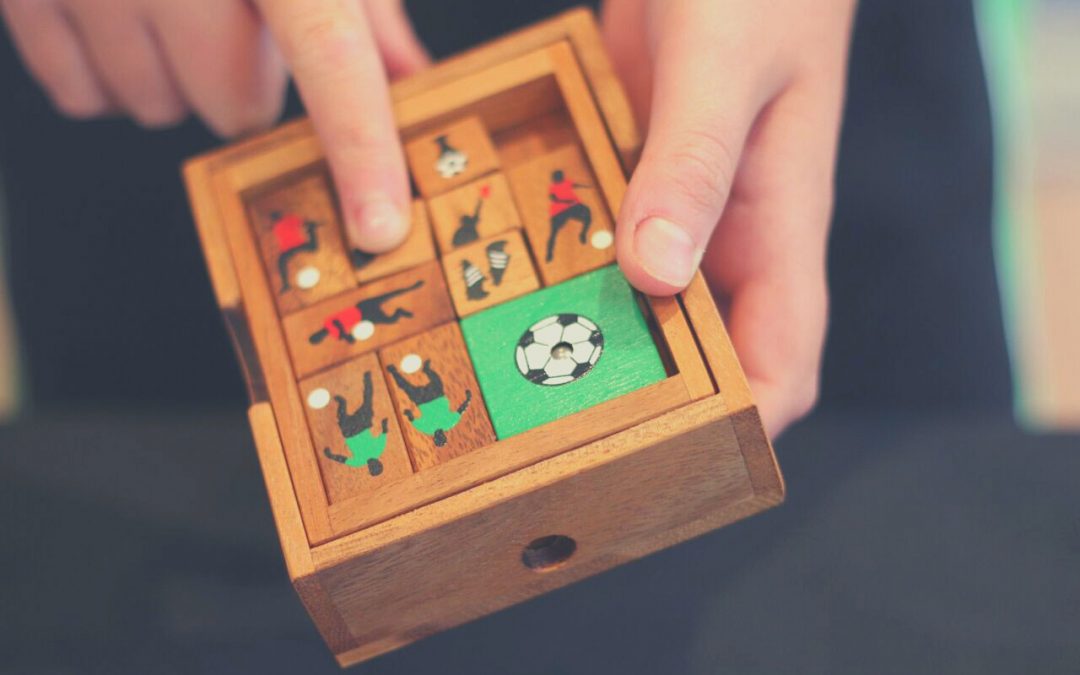Photo credit: “Football Towards Freedom” from Wolfpack Games
The act of Mindfulness involves focusing on the present moment. It is the ability to be present and fully engaged with whatever you are doing; free from distraction or judgment, and the ability to be aware of your thoughts and feelings without getting caught up in them.
Many benefits have been associated with practising Mindfulness, such as increasing focus (especially in children with ADHD), and an improvement in mental health and well-being {1,2,3}.
Mindfulness can also be used to help manage feelings such as anxiety and stress, and may also help with post-traumatic recovery {4}.
For school-aged children, studies show that there are numerous benefits to practising mindfulness, such as improvement in planning and organisational skills, and the ability to remember details and meta-cognition (understanding of one’s own thought process){5}.
Developing Mindfulness with regular practice at a young age can have long-lasting effects. It can be practised in a number of different ways and, with anything in life, the more you practice the easier it becomes to do! The practice of Mindfulness is recommended for people of all backgrounds and ages due to the wide range of benefits and therapeutic effects which come along with it.
It can, however, be challenging to achieve Mindfulness because training our brain to focus on one thing such as a breathing exercise is often difficult and requires lots of patience and practice. This is especially difficult for children, and even for some adults!
That is why playing games and puzzles are a great solution, as the act of playing games in itself is an act of Mindfulness! The act of focussing on a puzzle and attempting to solve it gently forces the mind to concentrate on the problem at hand. It requires you to be present at each step and solution. It requires undivided attention, which is similar to the practice of Mindfulness. Puzzles are a great way for our minds to practise focusing on one thing at a time.
Completing puzzles can also have the same benefits as practising Mindfulness exercises and can relieve stress. The reason for this is that both activities give great satisfaction and release endorphins as a reward for the achievement of focusing on one thing at a time. When we finally complete a puzzle or win a game, it brings about a good ‘reward buzz.’ Receiving a reward buzz is when our brain releases happy chemicals called endorphins or dopamine, which makes us feel good. Receiving these endorphins from Mindfulness and puzzles is a great way to stay healthy and strong.
Experts say that you should practise Mindfulness once a day. We say ‘bring on the puzzles and games and let the fun times begin!’
Wolfpack Games is a family-owned and operated business that specialises in ethically- sourced wooden puzzles and strategic games. Its mission is to source fun and educational puzzles and games, get kids off screens and bring families together. For more information go to www.wolfpack.games @wolfpackgamesonline
References:
- Zhou, Z., Liu, Q., Niu, G., Sun, X., & Fan, C. (2017). Bullying victimization and depression in Chinese children: A moderated mediation model of resilience and mindfulness. Personality and Individual Differences, 104, 137-142.
- Zhang, D., Chan, S. K. C., Lo, H. H. M., Chan, C. Y. H., Chan, J. C. Y., Ting, K. T., Gao, T. T., Lai, K. Y. C., Bögels, S. M., & Wong, S. Y. S. (2016). Mindfulness-based intervention for Chinese children with ADHD and their parents: A pilot mixed-method study. Mindfulness, 8, 1-14.
- Crescentini, C., Capurso, V., Furlan, S., & Fabbro, F. (2016). Mindfulness-oriented meditation for primary school children: Effects on attention and psychological well-being. Frontiers in Psychology, 7,
- Daigneault, I., Dion, J., Hébert, M., & Bourgeois, C. (2016). Mindfulness as mediator and moderator of post-traumatic symptomatology in adolescence following childhood sexual abuse or assault. Mindfulness, 7, 1306-1315
- Flook, L., Smalley, S. L., Kitil, M. J., Galla, B. M., Kaiser-Greenland, S., Locke, J., … & Kasari, C. (2010). Effects of mindful awareness practices on executive functions in elementary school children. Journal of Applied School Psychology, 26(1), 70-95.
- https://www.mother.ly/child/ease-your-anxious-child-6-simple-mindfulness-exercises-to-try-today
- Norris, C. J., Creem, D., Hendler, R., & Kober, H. (2018). Brief Mindfulness Meditation Improves Attention in Novices: Evidence From ERPs and Moderation by Neuroticism. Frontiers in human neuroscience, 12, 315. https://doi.org/10.3389/fnhum.2018.00315
- Ward, B. (2010, Mar 28). Mindful games: Can playing games and solving puzzles help baby boomers down the road? well … it can’t hurt. McClatchy – Tribune Business News Retrieved from https://search.proquest.com/docview/458381026?accountid=12528
- Harte, J. L., Eifert, G. H., and Smith, R. (1995, June). The effects of running and meditation on beta-endorphin, corticotropin-releasing hormone and cortisol in plasma, and on mood. Biological Psychology, 40, (3), 251-265. Retrieved from https://www.sciencedirect.com/science/article/pii/030105119505118T
- https://www.goodtherapy.org/blog/feeling-good-yet-seven-ways-to-boost-endorphins-022014#:~:text=Simply%20relaxing%20and%20focusing%20the,calm%2C%20happy%2C%20and%20content.
- https://www.masterpiecesinc.com/in-the-news/things-you-do-that-you-didnt-know-were-meditation/




